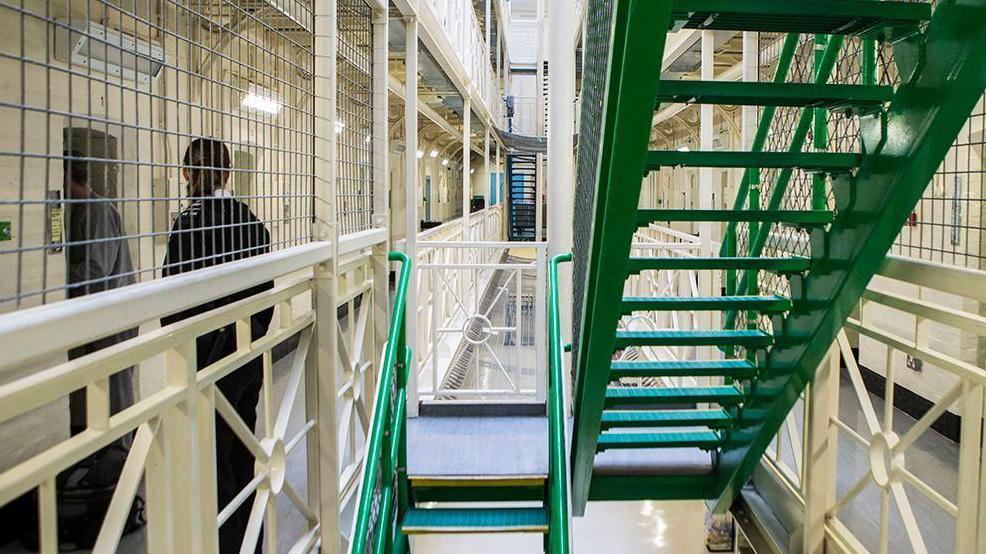Ministers shelve plan for early release of long-term prisoners
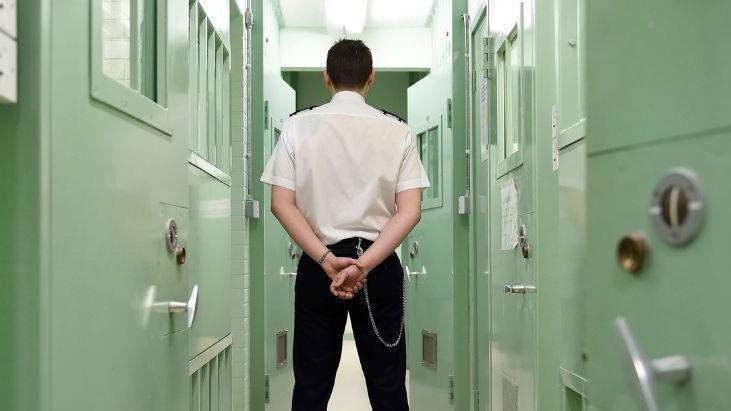
Scotland's prisons are "bursting at the seams", according to the first minister
- Published
The Scottish government has decided not to go ahead with proposals for the automatic early release of long-term prisoners, after concerns from victims of crime.
Justice Secretary Angela Constance had been considering the move to ease overcrowding in the country's jails.
She told Holyrood she would instead bring forward legislation to lower the automatic release point for hundreds of short-term prisoners from 50% of their sentence to 40%.
Prosecutors have also been advised not to oppose bail unless the accused is at "substantial risk of reoffending and causing harm".
Constance said she was still committed to considering changes to the rules for long term prisoners - but said a consultation process had revealed "significant practical difficulties".
The Scottish government's new proposals will only apply to eligible short-term inmates sentenced to less than four years.
The justice secretary said those convicted of domestic abuse and sexual offences would be excluded.
It comes after about 500 prisoners serving shorter sentences were released under emergency measures in July - 57 of whom have since been returned to prison.
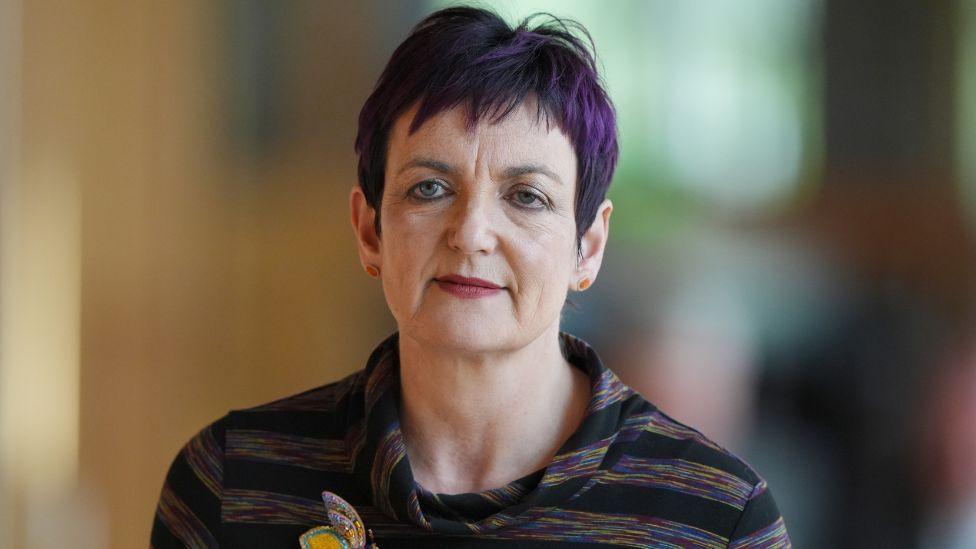
Justice Secretary Angela Constance plans to table an emergency bill
Constance said the proposed change would result in the prison population dropping by between 260 and 390.
“This will not resolve the prison population by itself, but importantly it is sustainable action rather than a temporary measure,” she said.
“I recognise the concerns that may arise from victims and their families and I am committed to working closely with victim support organisations.
“Public safety remains paramount which is why I am focusing on short-term prisoners only and with built-in exemptions.”
The minority SNP administration would need the assistance of at least two opposition MSPs to implement the plan.
Victim support groups have said that early release had been shown not to work.
Constance said her proposals, which she will table under an emergency bill next month, would replicate a change made south of the border by the UK government.
The bill could allow it to be passed in just three days.
Robust and fair
Meanwhile, Scotland’s top law officer told the Scottish Parliament that she was temporarily changing guidelines to prosecutors on opposing bail for people awaiting trial due to “significant pressures on prison populations”.
Lord Advocate Dorothy Bain has advised that bail should not opposed, in general, unless the defendant poses “a substantial risk of reoffending and causing harm to a victim, witness or the public".
She added: “Prosecutors and police will continue to be robust and fair, and my guidance to them means people will still be kept safe."
The lord advocate told MSPs that while judges decide whether bail is granted, the approach of prosecutors could have a “significant bearing” on the outcome.
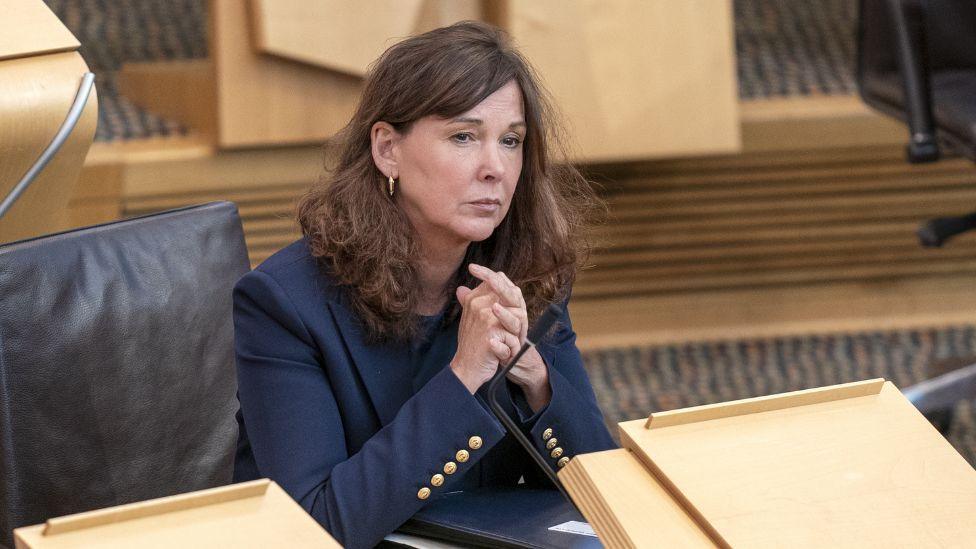
Lord Advocate Dorothy Bain announced changes to prosecution guidelines
Earlier, at First Minister Minister's Questions, John Swinney said Scotland’s prisons were absolutely bursting at the seams”.
The current population has risen to 8322 – above the target operating capacity of 8,007.
Scottish Conservative leader Russell Findlay blamed the SNP for what he described as the "catastrophic state" of the prison system.
It had been expected that the government might announce an early release programme for long-term prisoners, after it consulted on plans this summer.
This would have included those sentenced to more than four years who have served two thirds of their sentence. They would spend the rest of their term under community supervision.
It could have included those convicted of culpable homicide, child abuse, drug trafficking and causing death by dangerous driving.
But it would have excluded prisoners serving life sentence.
The justice secretary said while this approach would have brought benefits, there were concerns it would cause “significant practical difficulties”.
'Unacceptable overcrowding'
Kate Wallace, chief executive of Victim Support Scotland, said her organisation had “grave concerns” about plans to release long-term prisoners after two thirds of their sentence, which she said would put victims and the public at risk.
She welcomed the exclusion of people convicted of domestic abuse and sexual offences from the change to sentences for short-term prisoners, but called for clarity over whether a governor’s veto would be applied.
Stephen Sandham, acting chief inspector of prisons, said 10 out of 17 prisons were operating above capacity, with some inmates sharing cramped cells designed for one and sometimes having to sleep on mattresses on the floor.
He added: “We welcome all efforts to reduce the unacceptable level of overcrowding that exists and is projected to get potentially considerably worse.”
A Scottish Prison Service spokesperson welcomed the announcements made by the justice secretary and lord advocate, adding: “We cannot continue to see numbers at their current level, or indeed even higher, without serious detriment to our staff and those in our care.”
Related topics
- Published10 October 2024
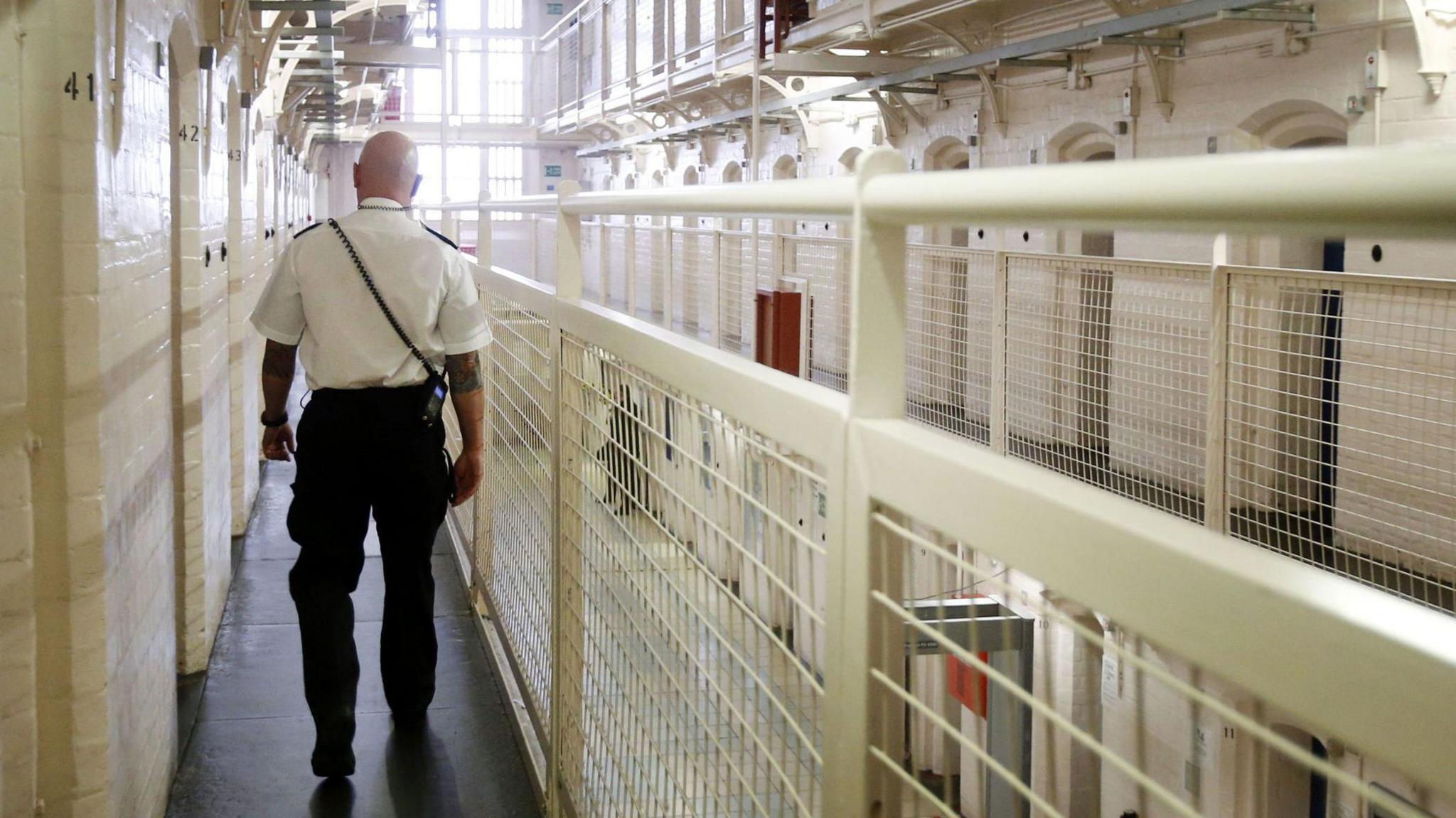
- Published2 October 2024
